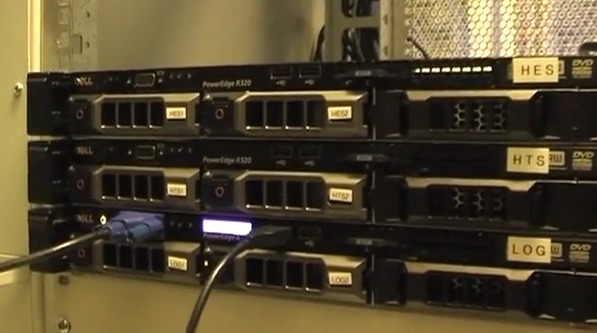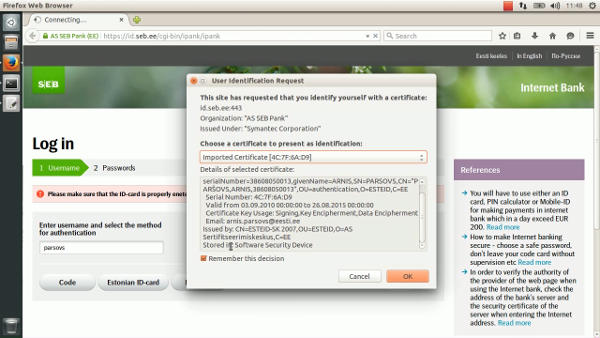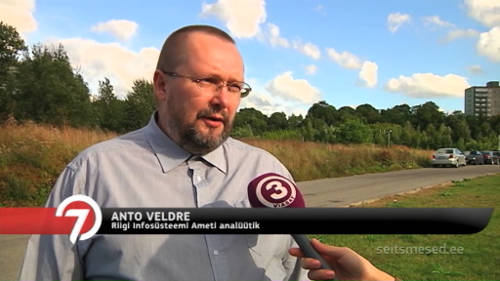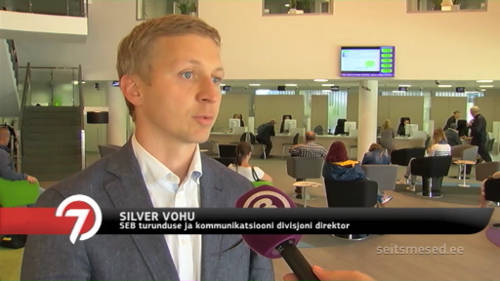
Managing Security Risks Using Attack-Defense Trees
Abstract: The In this thesis, we have addressed risk management using Attack Tree. The contribution to resolve the problem in this thesis includes three steps. Obtaining an alignment from Attack-Defense trees to ISSRM. Measurement of the metrics of the nodes of tree using historical data.
Student: Salman Lashkarara
Curriculum: Software Engineering (MSc)
Supervisor: Raimundas Matulevicius
Reviewer: Meelis Roos
Defense: 01.06.2017, Tartu, J.Liivi 2-404On Secure Bulletin Boards for E-Voting
Abstract: In this thesis, we propose a formal model for analysis of security and functionality of a bulletin board system motivated by the security requirements Culnane and Schneider introduced in Computer Security Foundations Symposium 2014.
Student: Annabell Kuldmaa
Curriculum: Computer Science (MSc)
Supervisor: Helger Lipmaa
Reviewer: Ahto Buldas
Defense: 01.06.2017, Tartu, J.Liivi 2-404Research and Proof of Concept of Selected ISKE Highest Level Integrity Requirements
Abstract: This work takes integrity domain under detail research to meet ISKE requirements and security objectives demanded for data with highest integrity needs.
Student: Deivis Treier
Curriculum: Cyber Security (MSc)
Supervisor: Raimundas Matulevičius
Reviewer: Andrey Sergeev
Defense: 02.06.2017, Tartu, J.Liivi 2-404Method for Effective PDF Files Manipulation Detection
Abstract: The aim of this thesis is to ease the process of detecting manipulations in PDF files by addressing its source code, before having to use other methods such as image processing or text-line examination. The result is the construction of a solid and effective method for PDF file investigation and analysis to determine its integrity.
Student: Gema Fernández Bascuñana
Curriculum: Cyber Security (MSc)
Supervisor: Pavel Laptev, Inna Ivask, Raimundas Matulevičius
Reviewer: Hayretdin Bahsi
Defense: 02.06.2017, Tartu, J.Liivi 2-404Establishing, Implementing and Auditing Linux Operating System Hardening Standard for Security Compliance
Abstract: This paper provides a proof-of-concept solution for being compliant with operating system hardening requirements of the company by establishing, implementing and auditing Linux (Debian) operating system hardening standard.
Student: Martin Jõgi
Curriculum: Cyber Security (MSc)
Supervisor: Truls Tuxen Ringkjob, Raimundas Matulevičius
Reviewer: Marko Kääramees
Defense: 02.06.2017, Tartu, J.Liivi 2-404A Prototype For Learning Privacy-Preserving Data Publising
Abstract: This master thesis will discuss different threats to privacy, discuss and compare different privacy-preserving methods to mitigate these threats. The thesis will give an overview of different possible implementations for these privacy-preserving methods. The other output of this thesis is educational purpose software that allows students to learn and practice privacy-preserving methods.
Student: Rain Oksvort
Curriculum: Software Engineering (MSc)
Supervisor: Raimundas Matulevičius
Reviewer: Benson Muite
Defense: 05.06.2017, Tartu, J.Liivi 2-404Filesystem Fuzz Testing Framework
Abstract: In the present thesis a fuzz testing framework was built, which can be used for finding time-of-check-to-time-of-use type bugs in Linux filesystems.
Student: Vladislav Alenitsev
Curriculum: Computer Science (BSc)
Supervisor: Meelis Roos, Kristjan Krips
Reviewer: Karl Tarbe
Defense: 07.06.2017, Tartu, J.Liivi 2-404Performance Testing Bulletin Board Implementations for Online Voting
Abstract: This work takes a look at two software solutions that can be used for such purpose and analyses their performance in testing environment imitating real election workload.
Student: Marek Pagel
Curriculum: Computer Science (BSc)
Supervisor: Sven Heiberg, Janno Siim
Reviewer: Ivo Kubjas
Defense: 07.06.2017, Tartu, J.Liivi 2-404
Cybersecurity theses defence on June 9, 2017 in Tartu J. Liivi 2-403 at 10.00 AM.
Defence Committee: Raimundas Matulevičius (chairman), Olaf Manuel Maennel, Vitaly Skachek, Meelis Roos, Hayretdin Bahsi.
Grades received (random order): A, B, C, C, D.
Improving and Measuring Learning at Cyber Defence Exercises
Abstract: This thesis takes a fresh look at learning in Cyber Defence Exercises (CDXs) and focuses on measuring learning outcomes. As such exercises come in a variety of formats, this thesis focuses on technical CDXs with Red and Blue teaming elements.
Student: Kaie Maennel
Curriculum: Cyber Security (MSc)
Supervisor: Rain Ottis, Liina Randmann, Raimundas Matulevičius
Reviewer: Sten Mäses
Defense: 09.06.2017, Tartu, J.Liivi 2-403Federation of Cyber Ranges
Abstract: This study compares two cyber ranges and looks into possibilities of pooling and sharing of national facilities and to the establishment of a logical federation of interconnected cyber ranges. The thesis gives recommendations on information flow, proof of concept, guide-lines and prerequisites to achieve an initial interconnection with pooling and sharing capabilities.
Student: Allar Vallaots
Curriculum: Cyber Security (MSc)
Supervisor: Jaan Priisalu, Uko Valtenberg, Raimundas Matulevičius
Reviewer: Rain Ottis
Defense: 09.06.2017, Tartu, J.Liivi 2-403A New Heuristic Based Phishing Detection Approach Utilizing Selenium Webdriver
Abstract: In this paper, we focus on detecting login phishing pages, pages that contain forms with email and password fields to allow for authorization to personal/restricted content. We present the design, implementation, and evaluation of our phishing detection tool “SeleniumPhishGuard”, a novel heuristic-based approach to detect phishing login pages.
Student: Ahmed Nafies Okasha Mohamed
Curriculum: Cyber Security (MSc)
Supervisor: Olaf Manuel Maennel, Raimundas Matulevicius
Reviewer: Hayretdin Bahsi
Defense: 09.06.2017, Tartu, J.Liivi 2-403Analysis of Exploit-kit Incidents and Campaigns Through a Graph Database Framework
Abstract: A great deal of automation can be achieved here by using public APIs such as VirusTotal, whois databases, IP blacklists, etc during the analysis and a first part of our work is dedicated to that. We will then show that this approach reveals patterns and clusters from which decisions can be made from a defensive perspective.
Student: Guillaume Brodar
Curriculum: Cyber Security (MSc)
Supervisor: Toomas Lepik, Raimundas Matulevicius
Reviewer: Arnis Paršovs
Defense: 09.06.2017, Tartu, J.Liivi 2-403Investigation of JTAG and ISP Techniques for Forensic Procedures
Abstract: This thesis is focusing on JTAG and ISP physical acquisitions techniques. The aim is to give an overview of these techniques from a forensic point of view and in addition to some other tests will try to prove that are forensically equivalent to any other method.
Student: Stefanos Pappas
Curriculum: Cyber Security (MSc)
Supervisor: Pavel Laptev, Raimundas Matulevičius
Reviewer: Emin Caliskan
Defense: 09.06.2017, Tartu, J.Liivi 2-403
Links:
https://www.cs.ut.ee/sites/default/files/cs/kaitsmiste_ajakava_1_2_5_06.pdf
https://www.cs.ut.ee/sites/default/files/cs/kaitsmiste_ajakava_6_7_8_9_06_.pdf









